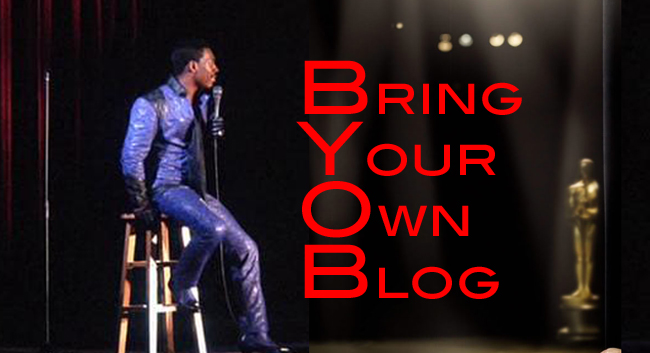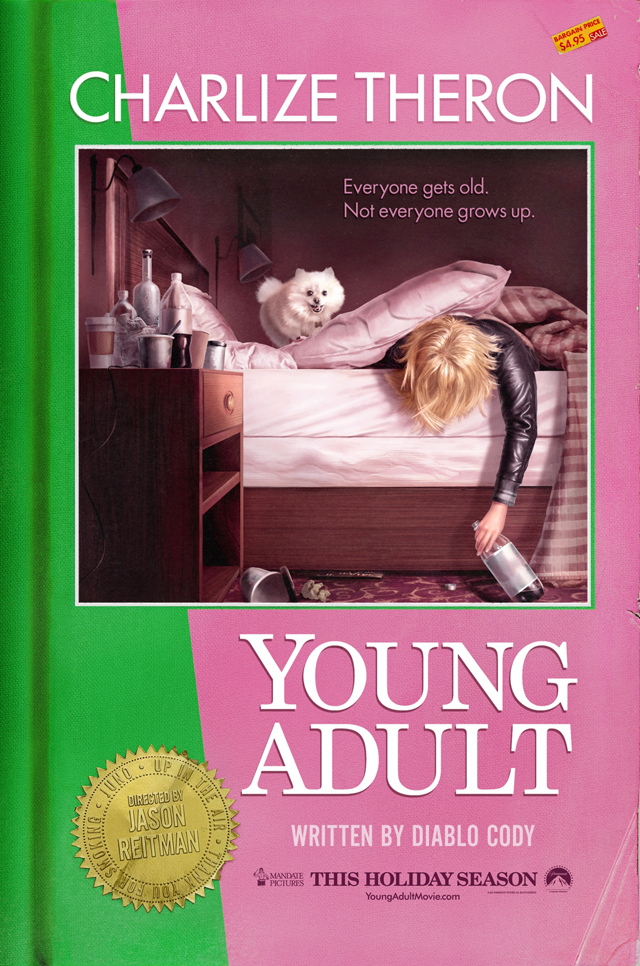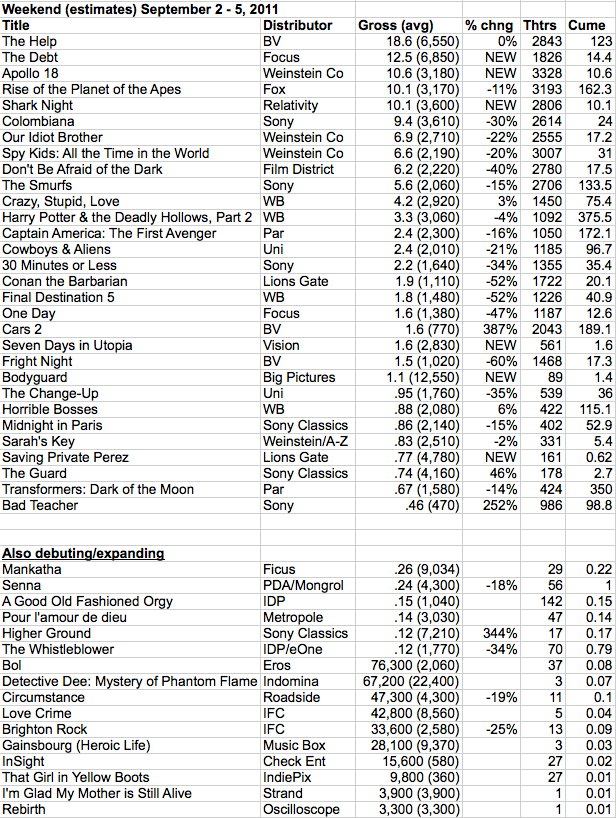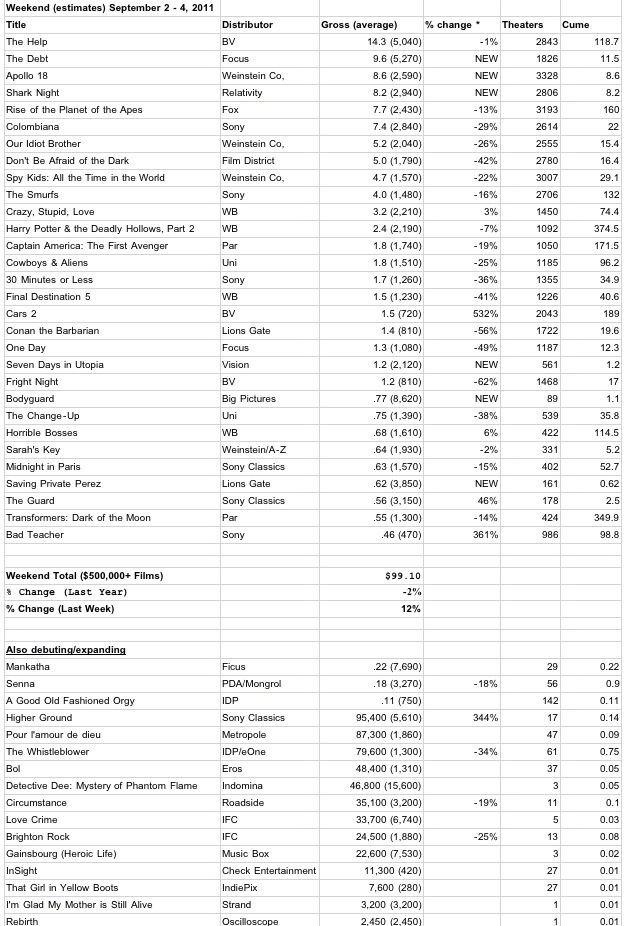The Hot Blog Archive for September, 2011
Toronto = Busy
Been tweeting… not enough, but that’s where movie thoughts have been.
All good movies yesterday… today, not as much. But the great Giamatti, the legendary Wim Wenders, and Grant Heslov, who is batting .500 for his career writing and producing Oscar nominees got DP/30ed to within an inch of their lives. And today is the slow day.
9 Comments »Good Morning Toronto
And so it begins…
Running to get the press credential so I can rush to a 9:30a date will Melancholia. What a way to start the week.
The good news, so far, is that King Street is already feeling more like a festival village than last year. We’re staying at a Lightbox condo and the walk to the hotels where the press events will mostly all be is 3-4 blocks in one direction, the Scotiabank theater, 3 blocks in another direction, press office is 1 block away, and so on.
Last night, Dolby did a dog & pony for their 7.1 Surround system that they have installed in the Lightbox 1 theater. The clip they used to illustrate, from Samsara was pretty stunning. Ran into programmer Thom Powers later and he mentioned it as one of the must-see docs of the fest. (There are a lot this year. After the “every doc will make $10m” disappointment passed, we seem to be in a great moment for the form again.)
Heard a great rumor about MCN last night. Shhhh… don’t tell anyone.
2 Comments »DP/30: Higher Ground, director/actor Vera Farmiga, actor Joshua Leonard

Myths About Box Office The NY Times Insists On Perpetuating
The summer box office wrap by Brooks “If he’s typing, you may want to check the facts” Barnes is, of course, a classically enraging mixture of carefully chosen facts and utterly ridiculous spin. I’m going to try to keep this from being a full-on rant for the sake of clarity. So…
MYTH 1: Ticket Sales Is A Major Issue – When this foolishness began, it was 2005, the year after The Passion of The Christ, Fahrenheit 9/11, and Shrek 2, three major box office anomalies. First, there was the year-to-date hysteria. Then the then showbiz beat hack, Sharon Waxman, hooked into comparing the weekend box office vs the “same” weekend the year before. This, of course, is not remotely insightful, as the release date choices, with the exception of Opening Day and the two holiday slots are not consistent in scale from year to year. So, for instance, the “same weekend” that saw Harry Potter 7b open to $169 million this year had Despicable Me and Predators opening last year. The combined opening of those two films was less than half of Potter’s. But no sane person would expect otherwise, right?
By the late summer, however, the weekly shriek about the world ending because of week-vs-week numbers was not working. 2005 weeks started beating 2004 weeks. And that’s when the ticket counting began. Yes, there were some people interested in this arcane issue before then. But as with comparing weekends year by year without context, counting tickets sold without context (or solid, reliable numbers) was and is a fool’s errand.
The film business is, always has been, and always will be about revenue. Studios and other funders do not care one whit about the delivery system, so long as whatever combination of systems maximize profits.
When television came along, of course it scared the theatrical film industry. But as time passed, those companies got into the business of television and started enriching themselves via that revenue stream. And the delivery of theatrical films changed too. (Obviously, this is a wildly simplistic recounting of what happened.)
When DVD launched 15 years ago and became dominant about a decade ago, the degree to which studios were willing to cut into tickets sold was determined by the revenue from DVD. It really goes back even further to VHS, when the studios got serious about sell-thru VHS after years of pushing to keep VHS a rental-driven business.
The exhibition window has shortened, by design of the distributors, every year since the advent of sell-thru VHS… perhaps longer. Because that’s how profits were maximized. And with that, fewer ticket sales.
Of course, the NYT conveniently now forgets that “tickets sold” were not a prominent stat until they made it one, just 6 years ago. They now write about it as though it is a standard by which decisions are made in the industry.
Which brings us to our next myth…
MYTH 2: Domestic Box Office Happens In A Vacuum – There is lazy reporting on box office all over the place. I just never expect the NYT to be leading the world in hacky journalism. And in this area, they do.
When you report on international box office or DVD revenues as though they are Value Added revenue, you are not doing your job as a journalist. These are not the Olympics. Rooting for your home country and acting like the rest of the planet is an afterthought is not just offensive, it’s stupid.
When you reporting on domestic box office as though the answer we see there is the only answer that defines success or failure – with occasional exceptions – you are not doing your job as a journalist. Every movie is an exception. Each one has its own revenue story.
Now… here is the hard part. Studios don’t publish DVD numbers. Studios don’t offer foreign numbers the way they offer domestic numbers on a weekly basis. Studios certainly don’t offer the budget on a movie and when they do, they are usually lying. And they never, ever, admit how much they are spending on marketing. So it’s very hard to do this work and to be comfortable that the numbers are 90% legitimate or better. And, obviously, many of these numbers are months away from being real for anyone, because of release dates and the windows between revenue platforms.
However, responding to the failure to be able to get real answers by publishing half-assed spin with all the editorial confidence of seeing and touching a dead body is an absolute dereliction of responsibility. And while I don’t expect much from most writers – interestingly, many of the bloggers take this a lot more seriously than the major media outlets – I do expect the New York Times to behave responsibly.
This notion that they like to repeat that international box office being a newfound summer savior is, simply, a load of excrement. Of the top 50 grossers of all time (unadjusted… oy), only 3 earned half of their revenue domestically… two of those being from 1982 and 1977.
If you want to trace the history of studios embracing and then relying on international box office equally and then more so than domestic on large budget movies, go back to the mid-90s. In 1996, Independence Day was a smash at home, but grossed 60% more overseas. In 1997, Titanic’s international gross was more than double its domestic gross. And so it has been ever since.
Harry Potter’s foreign has consistently doubled (and more) domestic. Each Pirates movie has seen its international gross become more dominant over domestic (53%, 60%, 68%, 77%). All the Rings movies were 63% – 66% foreign grosses. The Dark Knight is the only billion dollar worldwide grosser yet to have less than 60% come from international.
Now, how does the New York Times think decisions get made about financing these “tentpole” movies with their $200m-plus budgets? Do they realize that almost none of them could be profitable with these production price tags if there was no international revenue?
I think they do. But this is where it blurs for them. Because it is the bottom falling out of DVD revenues that have changed the direction of the film industry in the last few years, not any real fear of theatrical becoming a problem. If anyone has anything to fear from the issue of more revenue from fewer tickets sold, it’s the exhibitors, not the studios. But the NYT can’t really report in detail on the DVD business. So we get what they can report, sized to fit.
MYTH 3 – The Only Way To Count 3D Is To Consider The Box Office Bump
To start with, the 3D bump is wildly overestimated by journalists. About 15% of revenue domestically this summer came from 3D ticket sales. About 30% of that is The 3D bump. So 4% – 5% in revenues is the real 3D impact on this summer, measured in this simplistic way. That’s not insignificant, but it’s trotted out like it is a game changer. The problem is, it’s turning out to not be enough of a game changer… or to change the game in unexpected ways.
The failure of 3D as a mainstream film marketing tool is evident and real questions about whether 3D is improving business or hurting business are being addressed internally at the studios. A big part of that consideration has to be that the four biggest 3D grossers were also pre-sold franchise titles, which may or may not have had their fortunes improved by the emphasis on 3D in marketing. 3 of the 4 films underperformed previous franchise entries domestically, even with the 3D bump. It’s hard for Transformers to complain when the film did over $1b ww, but 12% off domestically has to be noted. Especially when the film seemed to be much better liked in many quarters than the previous entry.
The impact of so much talk about 3D, even as the majority of tickets sold domestically for all of the major 3D releases was under 50% for 3D, is a huge factor that has nothing to do with the popularity of the theatrical experience.
MYTH 4 – Context is a minor issue
At the end of March, 2011 domestic box office was more than 20% behind 2010 domestic box office over that first quarter of the year. By the end of June, that difference was just 8%. End of July, it was 5.3%. End of August, 4.4%.
I had the conversations with people back at CinemaCon. They were convinced that the sky had fallen. One said, “There is NO WAY that the business will self-correct from 20 something percent down to less than 5%. Mid teens, maybe… if they’re lucky.” This was a multi-decade box office analyst. Dead wrong.
This has been a remarkable comeback from a poorly programmed first quarter. And if you look at the LOADED holiday movie season, there is reason to think that we will be under 3% – or maybe even up from last year – when the books on 2011 are closed. And the holdovers into January 2012 look huge.
How about the summer itself? The last 5 years have been the 5 highest grossing summers ever, the only ones over $4 billion. The highest domestic gross was $4.3 billion, the lowest $4.1 billion. That’s less than a 5% swing, at its broadest ends, over 5 years.
And then, it’s about tickets sold. Because that estimated number doesn’t have to acknowledge how solid the box office has been or that it has gone up in previous summers, making a joke of the “it’s four in a row… eeewwwww” spin.
MYTH 5 – Summer should be judged on grosses and very little regard for costs
Yes, Barnes broke down the costs of one movie (Pirates)… so he could be more negative.
Love this gem – “(Disney also profits from sales of DVDs and related merchandise, however.)” However? Does the NYT know that the vast majority of movies only recover costs and hit profit in that “however?”
The truth is that the studios were a lot more cautious about spending this year. There were only two outright flops of any real size this summer, when last year and in years passed there were often 5 of 6 (a few years ago, 4 major losers at one studio).
Last summer, we had two comedies that cost about the same as Hangover 2, each with major stars. And those both felt like successes. Hangover 2 grossed $100m+ more than those two films combined.
The two Marvel movies had about the same number of tickets sold as previous non-Iron Man in-house Marvel films… and both benefited more clearly than most films from the 3D bump.
Ask yourself this… is there a single major studio that would take last summer over this summer? Think hard. Because I don’t think you could find more than one. Universal would be looking at Bridesmaids vs Despicable Me on the plus side, a hedged Cowboys & Aliens vs Scott Pilgrim on the down side. Probably 2010.
Sony is borderline. They had four solid hits last summer, but Smurfs on its way to $500m and $200m from Bad Teacher chases the bottom line on last summer’s more expensive foursome. Eat Pray Love vs Zookeeper could be the smaller grossers that push Sony to prefer 2010…but it’s close.
But aside from that… Paramount owns Transformers and didn’t own their big movies last summer. Fox did much better. Disney had big worldwide hits. Warner Bros easily takes this summer.
But none of the majors had terrible, career-damaging summers.
MYTH 6 – You can count on the NYT to report movie news and not just opine on it like the bloggers
Read the piece carefully and you will see that there are ZERO industry quotes, on record or off, that confirm any of Barnes’ hypotheses. Even the quotes from Phil Contrino do not speak to the arguments Barnes is making, but to facts that are really not a part of Barnes’ spin.
Just sit back and breathe in the lead… “It was the summer that North American movie attendance continued to slide, Hollywood’s reliance on overseas ticket sales intensified, the Smurfs flexed their minimuscles and a cadre of A-list stars flopped — again.”
Are you f-ing kidding me? What summer were you watching?
Barnes writes, “On a global basis, three movies took in more than $1 billion, the industry’s new threshold of smash success.”
It was an awfully narrow threshold until this summer, Brooks. There were 3 billion dollar grossers this summer. But there were only ever 3 in summer history before, never more than 1 in a year. There have never been more than 2 in the same year before.
Also in Summer 2011, there were 17 $100m domestic grossers vs 13 last summer.
And not only did The Help do business, but that it has significantly outgrossed the movies slotted the same way in the last few years with much bigger stars attached and equally big books.
Even Larry Fucking Crowne, which was deeply disappointing, grossed $53m worldwide so far, has a bunch of unopened territories, and will likely find a way to breakeven or better when all is said and done.
Are you writing an Op-Ed or reporting a story? I am fine either way. But if you write an Op-Ed and pretend it’s news reporting, that’s kinda f-ed.
Conclusion – I don’t need the NYT or anyone else to agree with me. But I do demand some level of reasonable analysis in arguments. Especially when the NYT is so very influential. People will read this pack of spin and believe it. And it can do nothing but hurt the industry.
There is no way that Mr. Barnes could go to look at this summer and spin it as negatively as he has unless he and his editors had decided on the answer before they started writing the story. You don’t have to say it was great summer (though it was pretty great). But if this was a shitty box office summer, there will NEVER be a good one.
And if that’s what the NYT wants to sell, it is not selling news and it is not fit to print.
18 Comments »4-Day Labor Day Estimates by Klady
So… The Help is having a remarkable run. I felt, at the time of release, that they were leaving money on the table by going so late in the season. And they may have left a little. But the holds have just been remarkable. Really, the best of the summer for a major studio release. Why? Because it opened strong enough to hold its own and to get a sampling and because of that, hadn’t lost steam by the time older audiences got serious about seeing it. There’s also a bit of January awards expansion to it… so much crap out there, people who want to see a “quality movie” (not trying to start a debate on the issues around the film again), have little choice. See one of the small indies or docs out there in limited theaters with limited opportunities or go see The Help. Whether critics like it or not, the word of mouth is good on this film… perhaps for some of the reasons that had so many writers riled up a few weeks ago.
And one has to hand it to Focus Features for getting The Debt to $14.4m domestic after its first weekend. It’s not quite The American, but it’s surprisingly close considering the lack of a bigger movie opener.
Apollo 18 and Shark Night were chasing the more traditional big grossing genre dollars that have been milked from this release date. The two distributors, by going head-to-head, probably yanked mediocrity from the jaws of great success.
It will be limping when it gets there, but Cowboys & Aliens looks like it could get to $100m domestic, the 17th and last film of Summer 2011 to get there.
And congrats to Paramount, which did an expanded run of Transformers 3 to get it to a nice clean $350m domestic gross… and succeeded.
7 Comments »Two Doc Reviews – Crazy Horse & Paul Williams Still Alive

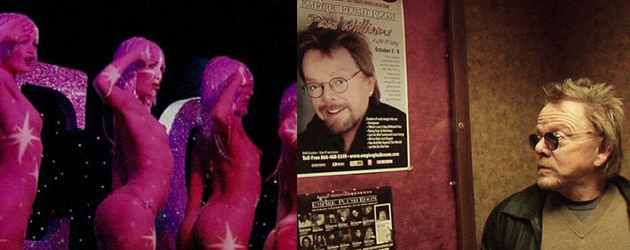
One film is by Frederick Wiseman, 81, director of 40 docs in the last 44 years, triple Emmy winner (and amazingly, never Oscar nominated), and industry legend.
The other is by Stephen Kessler, age unknown, director of no docs before this, though he is an Oscar winning (in 1991, for a short called Birch Street Gym), and best remembered in the industry for directing Vegas Vacation.
One is classic documentary form… no voice over… no director in the movie… beautifully shot and edited reality about an interesting subject. The premise of the other is that the director thought Paul Williams was dead, found out otherwise, and decided to make a movie about Williams still being alive and kicking, essentially diving in with the camera running, becoming a part of his subject’s life.
These couldn’t be two more different films on the surface. But dig a little deeper and you realize that both films are about show business and both films are, greatly, about the banality of glamour’s workings and the power of the facade.
The Crazy Horse is the legendary Paris nude performance club… not a strip club, but high-style buck naked burlesque. Wiseman’s work is impeccable. The movie flips between two different kinds of subjects. One is the performances themselves. Wiseman and longtime cinematographer John Davey make strong, distinct choices about how to shoot each act. Sometimes, it’s so close that the viewer’s eye has no choice but to watch the detail that the act is designed around. Sometimes, we are watching as though in the club. Most often, it is somewhere in between.
The other subject is the inner workings of the Crazy Horse (or “The Crazy,” as it is often referred to by staff). The film is built around the effort to breath new life into the then 57-year-old show by Philippe Decouflé, an acclaimed choreographer/artist in France… though you wouldn’t know much about Decouflé via the film, which doesn’t have anyone directly explaining anything. We are there, in the midst of the last weeks of pushing to the finish line, so we get a sense of what is going on, we get some info about the players based on their behaviors, but the voice of God stays out of things.
Interestingly, the women of the Crazy Horse are side characters in this piece. Their bodies are in virtually constant display. But whether is because they won’t talk or because they have nothing to say or because Wiseman just isn’t interested in their stories, they are, with the exception of a couple of scenes, the same as the lights or the costumes or the set themselves. Which is to say that they are treated like objects, but they are not really objectified as such. Wiseman’s camera is not judging them at all. They just are.
Crazy Horse is simply a well-crafted piece that feels like it does exactly what it sets out to do. If it had other goals, it would be a different film. And you could make that film too. But the genius of Wiseman, as others, is that he truly takes a slice of life and offers it too us. Of course, he makes choices. Of course, there are days of footage left behind. But you get to be a fly in the room and to experience life as it breathes in that space… no faking… no spin… no bullshit, aside from the natural bullshit to which we are all prone on this earth.
Kessler is a joker. And I mean this in a good way. But here is a guy who opens his doc with a voice over about how sad it is that Paul Williams is dead… he did such great stuff… but of course, he is alive… and more to the point, the movie is titled, “Paul Williams Still Alive!”
That kind of defines the entire tone of the movie. It’s a doc, for sure. But in some ways, it’s a story about Kessler’s search for and then search for intimacy with Williams. But it’s also a great look back at the remarkable life and career of Williams. But it’s also a rollercoaster ride about Williams’ current life, which is loaded with work, even if it’s not the A-List on which he was once a charter member.
It’s all of this. And Kessler has a good instinct about not crossing the line into hagiography or self-promotion. It’s like he’s walking a weird tightrope the whole time and you think he’s falling off… and you are rooting for him not to, because the pleasure of remembering and rediscovering Paul Williams is so much fun… and then, he rights himself and you are ready to keep going.
I have to say, I feel better about this movie than I think about this movie. The visuals are all over the place, there is a ton of activity but not much progress in storytelling, and when the moment comes to push Williams to really discuss the pain of getting lost in the stuff of his famous life, Williams, game about joking about it and himself often in the film, really doesn’t want to get down to it. There is none of the self-serving bravado of, say, Robert Evans, in telling his tale. (Which was brilliant in a very different way.) But there is not “The Answer.”
Yet, somehow, it fits.
This film belongs in the box set with the Joan Rivers doc, the Don Rickles doc, and even the Elmo doc that will soon be coming out theatrically. Both of those were straighter docs. But the spirit of people who worked their asses off, found a way, got up and then down and the up the mountain… all there. And there is something about Paul Williams… maybe the height thing… maybe the raw power of his music (one forgets how hard so much of it hit emotionally)… but there is something that makes the kink of what this film is feel even more appropriate.
I kinda loved Paul Williams Still Alive. And I really enjoyed every minute, even the languid ones, of Wiseman’s doc. Kessler has a protagonist. Wiseman doesn’t, really. Kessler captured the in-between world where a star lives when they are no longer the star they were, but are still in demand and working a lot (and agism in this business often precludes that), just differently. Wiseman took me behind the scenes where a skirt is defined by the shape that the ass appears to be on stage, where nudity is the starting point but precision artistry that includes the nudity is really the job, and where change is in the air, but history is the extra character that we never really see, but is larger than life.
So different. So much alike. Two filmmakers finding their way into their subject… doing more than just turning a camera on to watch something/someone interesting and yet, not making those choices too obvious. (Kessler does make his journey a part of the film, but after a while, I’m guessing much of his exposition is there to create structure, not echo reality.) This is why doc is such a great form. It can be anything. And anything can be thrilling.
22 Comments »Review: The Artist (spoiler-free)


It’s bad hoodoo to explain a joke. Or a great dramatic moment, for that matter. Emotion, whether laughter or tears, is not an intellectual exercise and this, intellectualizing them is a losing pursuit.
The Artist is both of these things… and not a whole lot more. It will make you laugh… and cry… and reflect.
We can discuss the technique, but that’s not what you want to know. I won’t discuss the structure here because the experience of the film is so much about the choices that Michel Hazanavicius makes as a writer and director. As an audience member, you anticipate choices that seem more or less obvious… and if and when they land, somehow, they still feel fresh.
We’ve seen this story before. It’s the arrival of the talkies from Singin’ In the Rain. It’s the rise, fall, and survival of a movie star and his relationship with a rising talent from A Star Is Born. It’s the comedic brilliance of silent films from Silent Movie, and, of course, from a long history of silent films.
But it’s really not like anything we’ve ever seen because it is the unique voice of Hazanavicius and the talents of Jean Dujardin and Bérénice Bejo that make it all theirs. It reflects everything and feels singular.
It’s funny… the trailer tells so much of the story, but can’t begin to convey the sweep of the piece. The film defies the idea that you can have the experience in 2 minutes. Or, for that matter, in a review.
Not everyone will love it, but for those who do, it will be a lot like falling in love. You can’t really express what it is you feel, but you feel it so powerfully, you can’t ever imagine not feeling it… or even feeling it less.
I wish I knew how to say more without infringing on whatever your experience is going to be. But I am pretty sure that 90+ percent of people who read this review will see this film… because a film lover has to… and if you’re not one, how the hell did you end up reading this review?
20 Comments »Review: Contagion (spoiler-free)

Sometime around now… maybe earlier in the summer… Steven Soderbergh was expecting to be coming out with his most commercial non-Ocean’s film in a decade, Moneyball.
Didn’t turn out that way.
So what comes out of the quiver in response? A masterpiece bound by the genre it lives in, but a masterpiece all the same. As Out of Sight flipped the romantic comedy and Erin Brockovich flipped the do-gooder movie and Ocean’s XX riffed on the rat pack flick, Contagion drives Steven right into Irwin Allen territory, where he uses all of his craft and collaborators to make a film that never feels like the schlockfest it could well have been.
Simply stated, Contagion is about the life of a pandemic. How does it start? How does it spread? How do governments react? How do regular people react? How will they stop it? Can they stop it?
There really is no star of this film. Matt Damon is the most consistent presence, offering the audience a regular guy to identify with, though Scott Z. Burns’ script pushes that too. Damon’s behavior is not always comforting. There are unexpected notes… and that’s what makes the film (in that element) so much more than The Towering Influeza.
In the early stages, as we meet hot doctors, from a sponged down Kate Winslet to Marion Cotillard to Jennifer Ehle, the fear of stunting grew in my belly. But all of them settle into being the great actresses that they are and their roles in this worldwide drama and the fear subsided.
Throughout the film, the characters behave in ways that make sense to their characters. They rarely feel symbolic. They are each pieces of a massive jigsaw puzzle laid out by Scott Burns. Just when you think you may be on to a stock character in Jude Law’s raging blogging tweeting defrocked journalist… ambiguity leans in and reminds us yet again that these are real people.
The thing that freaks people out about this film is the same thing I experienced – and most of you probably have – looking though medical magazines and seeing those giant pictures of the organisms that live all around us, including on our bodies. If you think too much about it, it’s paralyzing. And indeed, when you walk out of Contagion, you will look at the door handles of the theater and the parking ticket validation machine and your lunch a little differently.
So let me ask you… are you going to the movies to get numb or to feel something?
Winslet kills in this movie… it’s one of her best pieces of work… incredibly subtle and egoless and not just for lack of make-up. It’s performances like this that make the film work as art and not show biz. Loved Elliot Gould. Jennifer Ehle has two supporting roles this next month that make a lot out of a little screen time. Laurence Fishburne is a solid central wheel, clearly now entering the third act of his career. But it’s all the little pieces and small parts that really glue this film together. Matt Damon is a star, but Anna Jacoby-Heron, in her first film, as his daughter, is absolutely critical to giving him ground from which to push off.
Cliff Martinez delivers the best score of the year so far. Stephen Mirrione, on the Avid, keeps everything moving along but comprehensible. Peter Andrews does beautiful work here (for a bald guy) and helps keep clarity with subtle (and some not so subtle) variations of the look from story segment to story segment. And all the other departments are top of the line.
Scott Z. Burns delivers his second great screenplay collaboration. This project was never more than a few inches from being a hyperbolic, cartoony mess. And both in words and structure, Burns hits it out of the park. One never knows how these collaborations work between writer and director, so off-the-set, one never knows who made the choice for a character not to speak, for instance. But when a movie like this clicks, a lot of credit has to go to the architect. It’s almost impossible for it work so well without those very strong blue prints.
And Soderbergh… still one of the dozen great veteran filmmakers working in the world. There are those who would look to more arch artists around the globe and hold Soderbergh as too accessible (before slaughtering any film he makes that is experimental). But much as I would love to see what Francis Coppola or Scorsese would do with virtually any script being produced at any studio at any time… that’s how I feel about Soderbergh. He’s missed. But he’s out there swinging. He is A FILMMAKER. He is not satisfied to just go by the book. Like The Coens and Kubrick and Van Sant, he’s planting seeds when you watch his work. And he is not so worried about whether you leave the theater with a handful of flowers… you’ve been infected.
Contagion is one of those films that will be, as Soderbergh is, taken for granted by some critics. But it’s so much better than just being a thriller… which it is. It makes the audience a part of the world he is creating, whether that’s the scientific world or the world of loss or the world of longing… and he allows us in without telling us he’s being generous or making us work too hard or letting us off too easily.
It seems antithetical, but breathe the movie in and you will get the bug. Keep the mask on and you’ll get part of it – which still may be fun – but it will take longer for the whole experience to sink in… if it ever does.
29 Comments »







